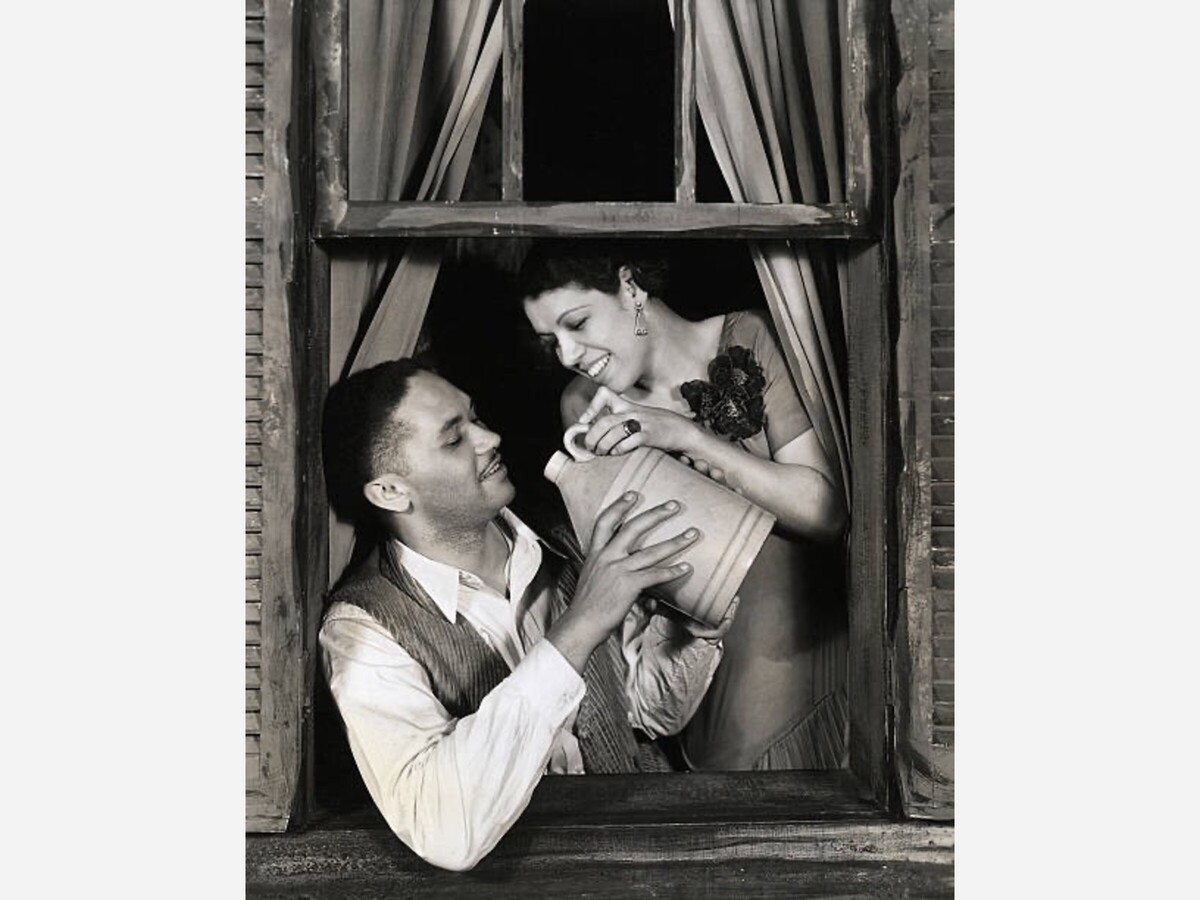Image


by Craig Bennett
George Gershwin’s opera Porgy and Bess has long struck me as a quintessential example of American art: a “folk opera” (Gershwin’s description), strongly influenced by jazz and popular forms of the time, based on a novel by a white Southern aristocrat about poor black people in Charleston, South Carolina, with both the libretto and the music written by a couple of Jewish brothers from New York.
Oddly enough, although it enjoyed a respectable run on Broadway, it wasn’t the immediate hit that it’s often assumed to have been. However, several selections from its musical score—like “Summertime,” “I Got Plenty o’ Nothin’,” and “Bess, You Is My Woman Now,” for example—became quite well known and remain so today. The wide popularity of the whole opera in performance, though, didn’t actually begin until the Houston Opera Company took its production on tour in 1976, which I was privileged to see and hear at Philadelphia’s Academy of Music.
One of my favorite stories about the work and its composer involves the casting of key roles. Most of the black male singers who might have fit the role of Porgy were vaudeville performers and had no acting skills or any experience of portraying a main character in a full-length musical drama.
One who might, however, was Todd Duncan, a member of the music faculty at Washington’s Howard University, the nation’s most prominent black college. He responded to Gershwin’s invitation to come to New York to audition, but only after he had fulfilled an obligation for the forthcoming weekend to sing in church.
Duncan wasn’t quite sure what to expect. The whole idea of Gershwin’s folk opera as it was presented to him was, he believed, outside of his experience. After all, he had been classically trained in operatic performance. But he went with an open mind. Perhaps most importantly, he liked George Gershwin almost immediately.
Gershwin, after hearing him sing a mere dozen bars of an audition piece he had prepared, stopped him and directed him to sing the same thing again looking directly at the composer and showing him his full face as he sang so that Gershwin could look into his eyes. After Duncan had done so, Gershwin asked him, “Will you be my Porgy?”
Duncan said that he didn’t know; he’d have to hear the music of Porgy and Bess before deciding. It was agreed then that Duncan would return the following weekend, accompanied by his wife—with all expenses covered by Gershwin himself.
The following weekend, Duncan and his wife met Gershwin in his studio, where he, assisted by his brother Ira, performed and sang the piano score of Porgy and Bess. Despite Ira’s complete lack of talent as a vocalist, Duncan later recalled, “I was in heaven. Those beautiful melodies in this new idiom—it was something I had never heard.” When George and Ira finally launched into “I’m On My Way,” the opera’s concluding number, there were tears running down Duncan’s cheeks.
So Todd Duncan became Gershwin’s Porgy—and, in fact, created the role, setting the standard for all subsequent Porgys from that time to the present. And he became famous, eventually performing in other shows, in Hollywood movies, at the White House, and on five different continents all over the world.
But it all started with an opportunity of which he was initially not quite certain, but which was salvaged largely by an all-but-instantaneous rapport between two gifted men who shared a most exceptional talent for, and love of, the art of music.
But there’s one more Porgy and Bess anecdote that is worth relating. Until the opera spent a few years touring Europe in the nineteen-fifties, the only performances outside of the United States were presented in March of 1943 in Denmark. That country was under Nazi occupation in 1943; but for a brief time, Porgy and Bess—with an all-Danish cast—was playing to sell-out crowds at the Royal Danish Theater in Copenhagen.
It was soon banned, of course, by the Nazi administration; but it had apparently made is point. When the Danish resistance managed to jam Nazi propaganda broadcasts on the radio, they preferred to do so with a recording of Sportin’ Life singing “It Ain’t Necessarily So.”
-Craig H. Bennett, author of Nights on the Mountain and More Things in Heaven and Earth, available at amazon.com, barnesandnoble.com, and the Firefly bookstore in Kutztown, PA
*Wood, Ean, George Gershwin, His Life & Music: Sanctuary Publishing, LTD, The Colonnades, 82 Bishops Bridge Road, London W2 6BB 1996
*Wyatt, Robert and John Andrew Johnson, ed., The George Gershwin Reader, Oxford University Press, New York 2004
**Seen and Heard International…25/03/2014… by Stan… “Porgy and Bess Production in Copenhagen a Great Operatic Experience”… accessed 7/26/23 (Google)